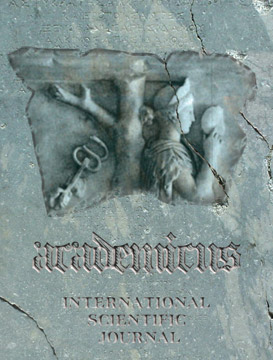Title:
Author(s):
Abstract:
Electoral behavior is a new element in the political analysis of democracy in Albania. Distinctive features of the Albanian transition distinguish other models of the former communist countries, as well as significantly differ with Western models and electoral behavior analysis of the relations between political actors and citizens voting. Penal Code of the Republic of Albania remains the basis of criminal law to sanction criminal acts in the election. The object of criminal misconduct are directly related to the normal criminal and legal protection and free elections as well as the Albanian Constitution provides all these obstacles to electoral subjects committed by force or by any other means which directly affect the normal performance electoral system. Barriers can be done with physical or psychological, and consists in blocking commissioners election materials, election materials decay affecting decay electoral system unfairly supported a particular political party or a coalition of political parties that present list candidacy according to the rules defined in the electoral code. Albanian Constitution as the fundamental law of the Albanian state provides for the rightness of the equality of the vote for all Albanian citizens The vote is the democratic way that every citizen expressing the opinion and its political will but to have democratic value ratings should be personal equal, free and secret. The right to vote is a political right provided by the Albanian Constitution and the Universal Declaration of Human Rights and as such is closely linked to democracy, the sovereignty of the people and citizens. Total vote, or the right to get to the polls all Albanian citizens, men and women, and in fact is the greatest achievement of the twentieth century. According to the Electoral Code of the Republic of Albania every citizen exercises his right to vote at his polling station, where placed under citizen’s location criteria. Voting centers organized in such a way as to facilitate the voting process and ensure the secrecy of the vote. Democracy lives by opinions competition. In all areas of society, in the family and at school, association and enterprise, democracy needs a social climate which stimulate open discussion on the differences of opinion.
Keywords:
electoral, offenses, common law, system, Albania
Full Text PDF:
References:
View complete reference list, click
here
Digital Object Identifier DOI:
The article's content ©Academicus™ Electoral Offenses in The Common Law System
by
Doctoral Candidate Vladimir Mulaj
is licensed under a Creative Commons
Attribution-NonCommercial 4.0 International License.
Presented:
February 2013
Included for Publishing:
June 2013
Published:
July 2013,
Volume 4,
Issue 8
Academicus International Scientific Journal is an Open Access Journal. This means that all content is freely available without charge to the user or his/her institution. Users are allowed to read, download, print, search, or link to the full texts of the articles in this journal without asking prior permission from the publisher or the author. This is in accordance with the BOAI definition of open access. Users are obliged to cite the source (Academicus International Scientific Journal) and the author, according to the international citation standards.
To learn more about the OA Policy followed by Academicus ISJ, read Journal Regulations
Academicus
International Scientific Journal
pISSN 2079-3715
eISSN 2309-1088
Address:
Sheshi i Flamurit, Rruga Muze
Al-9401 Vlorë, Albania
Tel: +355 68 60 60 555
info@academicus.edu.al
https://academicus.edu.al



 Scholar
Scholar
 Crossref
Crossref
